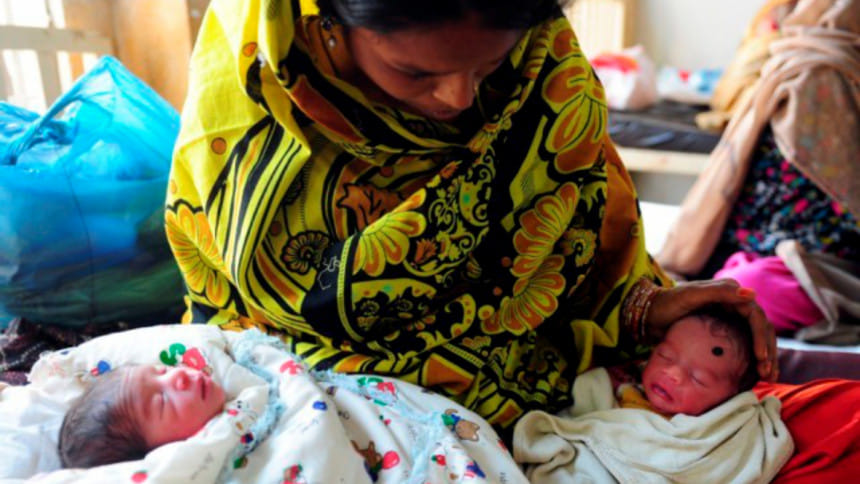We need to roll up our sleeves for South Asia’s children and we need to do it now

These situations never cease to impress and move me: a girl who has never had the chance to go to school before, deep in concentration, learning how to bend and twist a shape drawn on paper into a word. I see another child being treated by a health worker—receiving the medicine that will allow him to survive another day—and many more thereafter. I am also moved when I meet a newborn girl, bundled up in her father's arms as her birth is registered and her identity is officially recognised. Later in life this proof of her age can help protect her from child marriage and child labour.
This happens every day across South Asia where millions of children depend on us—the adults—to ensure they can enjoy all of the rights enshrined in the Convention on the Rights of the Child. The Convention is an international agreement that has inspired governments to change laws and policies so that children's rights are met—and this year we can proudly celebrate its 30-year anniversary.
All countries in South Asia have signed up to deliver these rights for children—including the right to the best healthcare possible, safe water to drink and nutritious food. Children also have, among many other rights, the right to play and the right to be protected from harmful punishment and sexual abuse.
One third of the world's children and adolescents live here in our region. If we can get it right in South Asia, we will have impacted a huge part of the globe's youngest generation for the better. We have seen powerful and positive changes in children's lives in the eight South Asian countries over the past 30 years. Nevertheless, there is no time to waste if we truly care about every single child and genuinely wish to give each one the best possible start in life.
It is a core principle of children's rights that every child has the right to life, survival and development.
Nevertheless, the issues that we are facing in South Asia are daunting: data on nutrition shows us that the region is lagging behind sub-Saharan Africa in low birth weight, stunting and wasting. In some of our countries, diets that are high in sugar and fat are increasing the risk of overweight and obesity in children which can result in lifelong health problems.
A harrowing number of newborns never get the chance to live. Out of all new babies in South Asia, 2.7 percent die in the first 28 days of life. This is the same figure as sub-Saharan Africa. There are many reasons for this, but the lack of clean water—which often leads to child malnutrition and serious disease—is certainly one of them. The lack of investment in the nutritional care of women during pregnancy also has dire consequences for survival rates and the well-being of newborns: one in four infants in South Asia is born small and weak, often as a direct result of maternal undernutrition.
When we look at education, we also see a major prospect for change: 10 million children are not enrolled in primary school and almost half of those who are do not learn the basics of reading and mathematics. When we look at secondary school, a staggering 18 million do not have the chance to enrol. And one-third of all children will not set foot in a pre-school even though this gives them the very best foundation for learning.
Then we have emerging issues such as air pollution and climate change—both of which demand an urgent call to action. Millions of children breathe toxic air every day and that can have a serious impact on their lifespan and even their intellectual capacity. The effects of climate change are undermining children's right to survive and thrive—and we have only seen the beginning of these unsettling developments.
I know I am not alone when I say that we as adults can and must do better. We have no excuses but we have plenty of opportunity to act.
We know for a fact that societies improve for everyone when we invest in children. All evidence tells us that for each dollar spent on, for example, education and health, a society will benefit manifold.
So that is the great and uplifting news: if we ensure the fulfilment of rights we have promised the youngest generation, and if we protect and invest in our wonderful and talented children, South Asia as a whole will thrive.
It is very simple: when we, as adults, do good for our children, we do good for our world.
Jean Gough is Unicef's Regional Director for South Asia.
Follow The Daily Star Opinion on Facebook for the latest opinions, commentaries and analyses by experts and professionals.
To contribute your article or letter to The Daily Star Opinion, see our guidelines for submission.

 For all latest news, follow The Daily Star's Google News channel.
For all latest news, follow The Daily Star's Google News channel. 



Comments